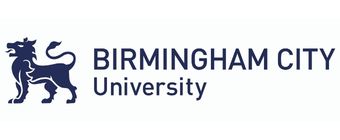BEng (Hons)/MEng Mechanical Engineering degree will develop you as a skilled engineer capable of undertaking mechanical engineering tasks within and across organisations. The course focuses on the importance of sustainable futures and the Government's STEM agenda, in order to give you the knowledge and attributes you will need to thrive in this ever-changing industry....
BEng (Hons)/MEng Mechanical Engineering degree will develop you as a skilled engineer capable of undertaking mechanical engineering tasks within and across organisations. The course focuses on the importance of sustainable futures and the Government's STEM agenda, in order to give you the knowledge and attributes you will need to thrive in this ever-changing industry.
You'll work on industry-standard analytical tools, develop your design skills, as well as exploring a wide range of facilities, such as our test cell and exhaust analysis equipment.
WHAT'S COVERED IN THIS COURSE?
Our engineering courses focus on project-based activities, giving you lots of opportunity to work in teams on projects from design to implementation. This will give you practical experience of applying engineering science to real world problems, working in multidisciplinary teams to develop your interpersonal skills, and prepare you for a key aspect of modern engineering practice. Problem solving and project management are key skills for an engineer, and our focus on practical experience will help to improve your skills in these highly sought after areas.
During your studies, you will use the latest tools and technologies, developing new skills at an advanced level. The course will encourage your creative thinking and develop your engineering leadership skills. Building on a foundation of the generic skills required by tomorrow’s engineers, you will also explore the wider context of engineering, as well as the application of advanced engineering principles to solve problems through research and development. You’ll engage in independent study and systematic enquiry at an advanced level and take responsibility for the conclusions drawn from it.
You will have lots of opportunity to apply industry-standard modelling and simulation techniques to the analysis, specification and design of mechanical engineering systems so that you are able to apply your knowledge and theory to a practical situation. In this way, we make sure you are ready to step straight into employment.














